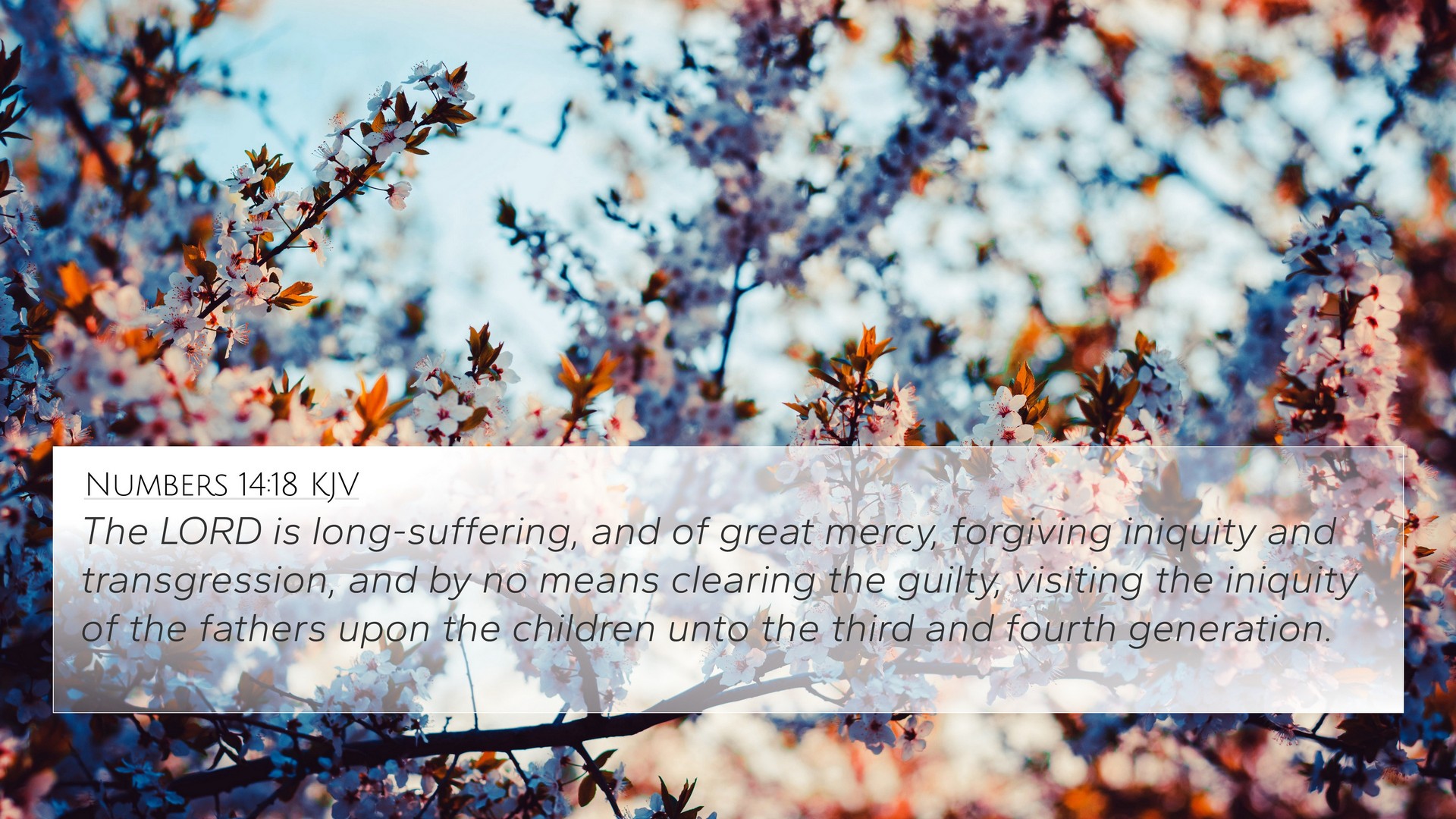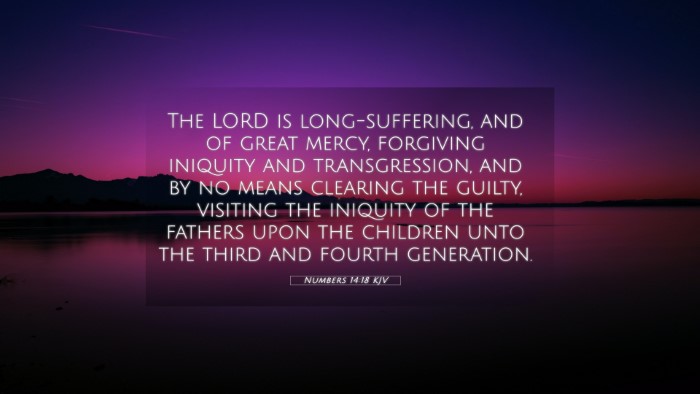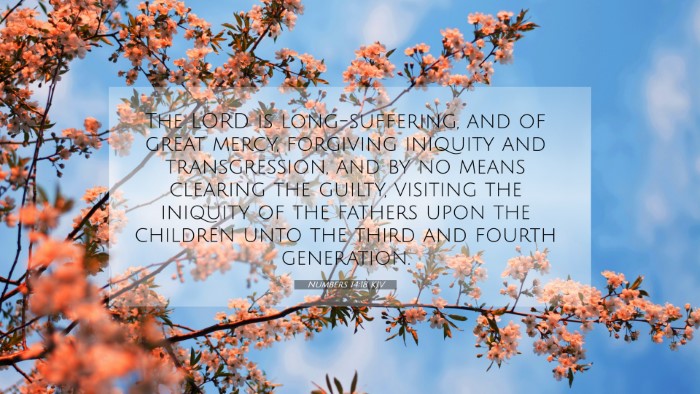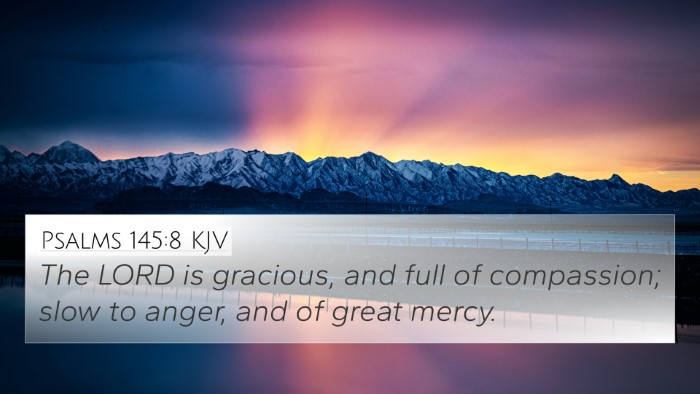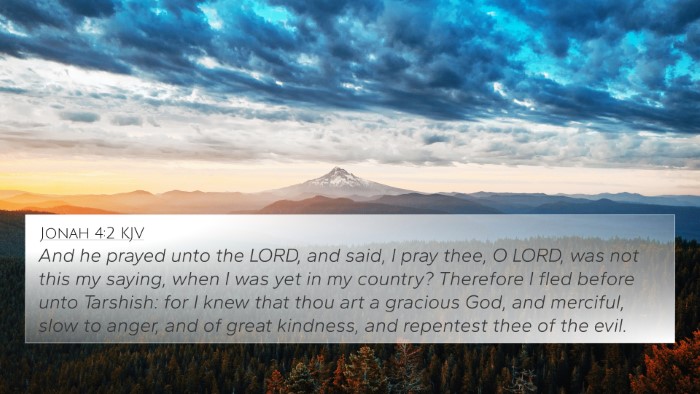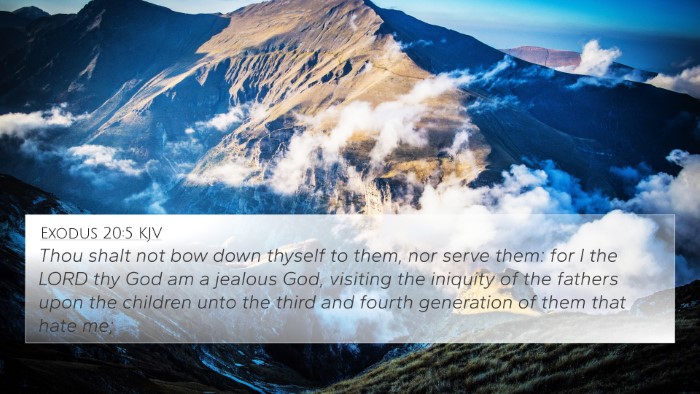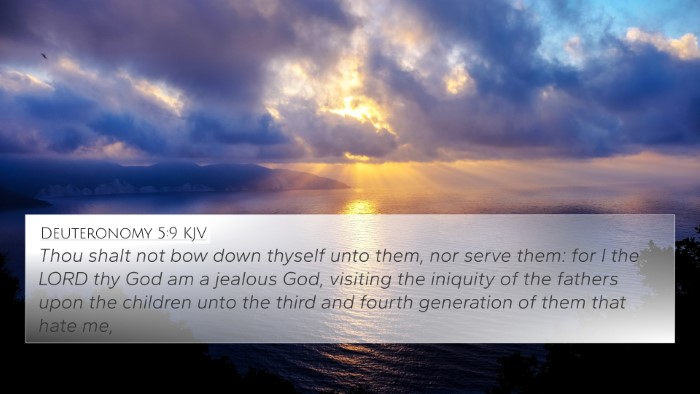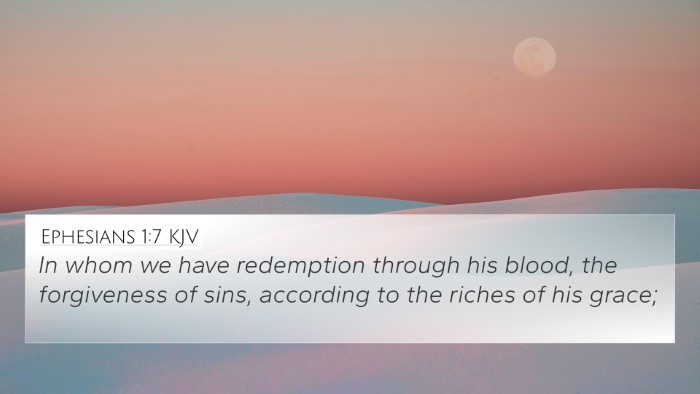Understanding Numbers 14:18
Verse Text: "The LORD is slow to anger, and of great kindness, and forgiveth iniquity, and transgression, and by no means clearing the guilty, visiting the iniquity of the fathers upon the children unto the third and fourth generation." (Numbers 14:18, KJV)
Summarized Meaning
This verse reflects the nature of God in His dealings with humanity, particularly emphasizing His mercy and justice. It highlights a dichotomy of God's character: His readiness to forgive and His commitment to justice.
Insights from Commentaries
-
Matthew Henry's Commentary:
Henry notes that God’s slowness to anger provides comfort to His people, suggesting that divine patience allows time for repentance. The emphasis on forgiveness reiterates God’s compassionate nature, while the warning about visiting iniquity points toward accountability.
-
Albert Barnes' Notes:
Barnes elaborates on the balance of God’s attributes, pointing out that while God is merciful, He also holds individuals accountable for their sins. The 'visiting of iniquity' signifies that consequences may extend beyond immediate offenders, affecting future generations.
-
Adam Clarke's Commentary:
Clarke emphasizes that God's willingness to forgive does not negate His justice. He highlights that true repentance is necessary for experiencing God's kindness and stresses that God's justice is executed in a manner that serves a greater purpose for His created order.
Cross-References
Here are some related Bible verses that echo themes found in Numbers 14:18:
- Exodus 34:6-7: Similar declaration of God's attributes, emphasizing His mercy and justice.
- Deuteronomy 5:9-10: Discusses generational consequences of sin and God's steadfast love for those who obey Him.
- Psalms 86:15: Reiterates God's graciousness and compassion, highlighting His patience.
- Psalms 103:8-10: Celebrates the Lord's mercy and His refusal to deal with us according to our sins.
- Lamentations 3:22-23: Affirms God's unending mercies and faithfulness, even amidst judgment.
- Romans 2:4: Speaks to God's kindness leading to repentance, aligning with the theme of merciful forgiveness.
- 2 Peter 3:9: Highlights God's patience towards humanity, giving time for repentance instead of swift judgment.
- Galatians 6:7: Introduces the idea of sowing and reaping, which connects with the consequences of sin mentioned in Numbers 14:18.
Thematic Connections
The themes of mercy, justice, and generational consequences present in Numbers 14:18 form an intricate web with various scripture passages, providing a deeper understanding of God’s nature throughout the Bible.
Tools for Cross-Referencing
When engaging in biblical studies, using tools for cross-referencing can enrich your understanding:
- Utilize a Bible concordance to search for key terms related to mercy and judgment.
- Refer to a cross-reference Bible study guide that organizes scripture connections effectively.
- Engage in a cross-reference Bible study approach for deeper thematic exploration.
Identifying Connections
Understanding the connections between Old and New Testament scriptures, such as those between Numbers 14:18 and passages in the Gospels about forgiveness, can illuminate the holistic message of Scripture regarding God's character.
Conclusion
Numbers 14:18 stands as a profound scripture that reveals both the forgiving nature of God and the serious implications of sin. By utilizing comprehensive resources for cross-referencing, believers can delve deeper into the themes found throughout the Bible, appreciating the intricate tapestry of God’s love, mercy, and justice.
